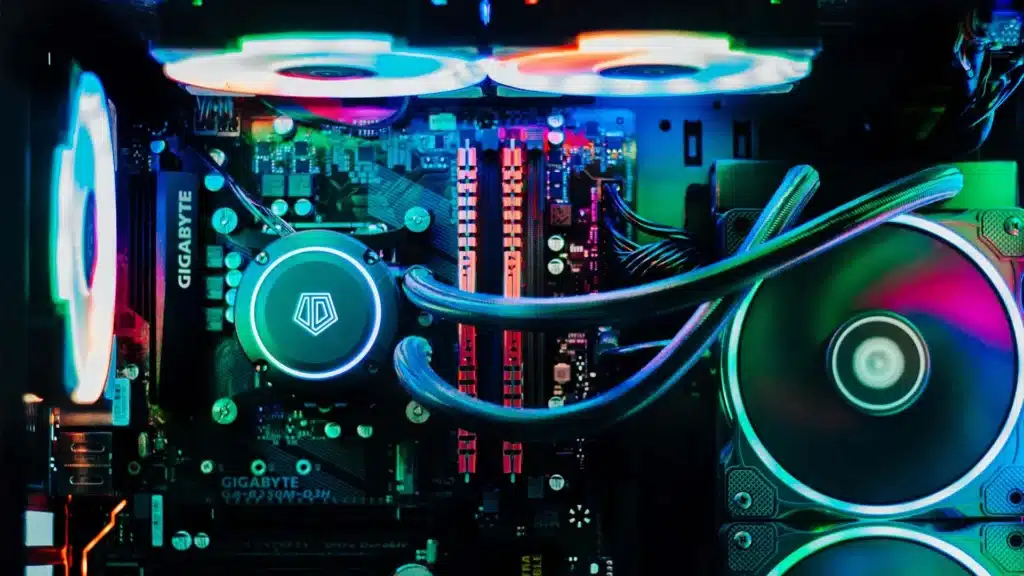Massive system requirements in game development refer to the high hardware specifications and computational power needed to run modern games smoothly. This includes factors such as processor speed, graphics card capabilities, memory capacity, and storage space. Games with massive system requirements often demand high-end gaming PCs or consoles to deliver optimal performance and graphics fidelity.
In recent years, the gaming industry has witnessed rapid advancement in technology, leading to the development of visually stunning and immersive games. These advancements have come at the cost of increasing system requirements, making it challenging for some players to enjoy the latest games due to the need for expensive hardware upgrades. As a result, a significant portion of gamers may be left out or have limited access to these high-demanding games.
Future of gambling games with lower system requirements
The integration of gambling games in low-spec devices and mobile platforms further contributes to the future of lower system requirements. With the widespread use of smartphones and tablets, game developers and online casinos are increasingly focused on optimizing their games for these devices. By employing efficient coding techniques, resource management, and graphics optimization, gambling games can be made accessible to a broader audience. This enables players to enjoy thrilling casino experiences on their handheld devices, regardless of their hardware capabilities. Whether it’s a budget-friendly smartphone or an older model, players can still participate in the excitement of gambling without feeling limited by their device’s specifications.
Advancements in online gambling platforms have the potential to revolutionize the accessibility of gambling games with lower system requirements. Online casinos, equipped with cutting-edge technology and innovative software solutions, are constantly improving their platforms to offer seamless and immersive gambling experiences to players worldwide. These platforms cater to a diverse range of devices, including low-spec devices and mobile platforms, ensuring that players can enjoy their favorite casino games without the need for high-end hardware. For instance, players in Australia can easily access the best online casino Australia, where they can indulge in a wide variety of games and betting options with optimal performance, even on devices with modest specifications.
A notable shift towards browser-based gambling experiences is also anticipated in the future. Browser-based gaming eliminates the need for downloading and installing large game files, thus reducing the burden on system resources. By leveraging modern web technologies such as HTML5 and WebGL, developers can create captivating gambling games that can be played directly in web browsers. This approach not only lowers the system requirements but also offers the convenience of instant access to a wide range of casino games without the need for dedicated gaming hardware. Players can enjoy seamless gameplay experiences through their preferred browsers, providing a hassle-free and enjoyable gambling experience.
The development of lightweight gambling game variants holds promise for reducing system requirements while maintaining the excitement and entertainment value. Game developers are increasingly focusing on creating streamlined versions of popular gambling games that require fewer system resources without compromising on gameplay quality. These lightweight variants utilize optimized graphics, efficient code, and data compression techniques to deliver smooth performance on devices with lower specifications. This ensures that players with modest hardware can still engage in thrilling gambling experiences without feeling excluded from the latest offerings.
Overall, the future of gambling games with lower system requirements appears bright and promising. Advancements in online gambling platforms, the integration of games in low-spec devices and mobile platforms, the shift towards browser-based experiences, and the development of lightweight game variants are all positive steps toward making gambling more accessible and enjoyable for a wider audience.
Gambling and system requirements: Virtual reality (VR) and augmented reality (AR)
High system requirements for VR and AR experiences have been a limiting factor for widespread adoption. The demanding nature of rendering realistic 3D graphics in real-time and providing smooth, latency-free interactions has traditionally required high-end hardware specifications. Powerful processors, high-resolution displays, and dedicated VR/AR headsets have been essential components to deliver the immersive experiences these technologies promise. However, these high system requirements have limited accessibility to a broader audience.
Introduction to VR and AR in gambling sets the stage for innovative and immersive gambling experiences. Virtual reality (VR) and augmented reality (AR) technologies have gained significant attention in recent years, offering players a whole new level of immersion and interactivity. In the realm of gambling, these technologies have the potential to revolutionize the way players engage with their favorite casino games. Imagine stepping into a virtual casino environment where you can interact with realistic virtual dealers, walk around the tables, and participate in the best table games on casinos, all from the comfort of your own home.
Potential advancements in VR and AR technology hold promise for lowering system requirements while maintaining immersive gambling experiences. Ongoing research and development efforts are focused on improving the efficiency of rendering techniques, optimizing resource management, and leveraging advancements in hardware technologies. These advancements may lead to more affordable and accessible VR/AR devices that require less powerful hardware to deliver compelling gambling experiences. As these technologies evolve, the barriers to entry may be reduced, allowing more players to enjoy the excitement of VR and AR gambling without the need for top-of-the-line hardware.
Implications and opportunities for gambling games in VR and AR are substantial. With the potential reduction in system requirements, more players can engage in highly interactive and realistic gambling experiences. VR and AR technologies offer opportunities for casinos to create virtual environments that replicate the atmosphere of real-world casinos, enhancing the social aspect of gambling. Additionally, features like gesture-based interactions and immersive audiovisual effects can heighten the engagement and excitement of playing casino games. The best table games can be reimagined in VR and AR, providing players with a dynamic and immersive environment where they can enjoy their favorite card games, roulette, or slot machines. By seamlessly blending gambling and virtual reality, casinos can provide players with unique and unforgettable experiences that transport them to a virtual realm of entertainment and chance.
Potential future trends in game development
Streamlined game engines and development tools are likely to play a crucial role in reducing system requirements. Game engine developers are continuously striving to optimize their engines to deliver high-quality graphics and realistic physics while minimizing the hardware resources needed. By streamlining the engine architecture and improving the efficiency of rendering algorithms, developers can create visually impressive games that run smoothly on a wider range of hardware configurations. Additionally, user-friendly development tools that automate optimization processes can help developers optimize their games for various platforms, ensuring better performance without sacrificing visual fidelity.
Cloud gaming and remote processing have the potential to significantly lower system requirements. With cloud gaming, the heavy lifting of game processing is offloaded to remote servers, allowing players to stream games directly to their devices. This eliminates the need for powerful hardware on the player’s end since the game is being rendered and processed remotely. As internet infrastructure improves and latency is minimized, cloud gaming can provide a viable solution for playing high-quality games on low-spec devices, as long as they have a stable internet connection.
Advancements in compression and data streaming technologies can lead to games with lower system requirements. By effectively compressing game assets and implementing efficient data streaming techniques, developers can reduce the amount of data that needs to be loaded into memory at any given time. This not only decreases loading times but also allows games to run smoothly on devices with limited memory and storage capacity. Furthermore, ongoing developments in real-time data compression algorithms can significantly optimize network bandwidth usage, making it easier for players to access online multiplayer games without the need for high-speed internet connections.
Overall
In conclusion, the future of game development holds the potential for games with lower system requirements, making them more accessible to a wider audience. While the current trend in game development leans towards higher system requirements due to technological advancements and increasing demands for visual fidelity and immersive experiences, several factors and emerging technologies provide hope for a more inclusive gaming landscape.
Streamlined game engines and development tools aim to optimize performance and graphics while minimizing the hardware resources needed. By improving the efficiency of rendering algorithms and providing user-friendly optimization tools, developers can create visually impressive games that run smoothly on a broader range of hardware configurations.


